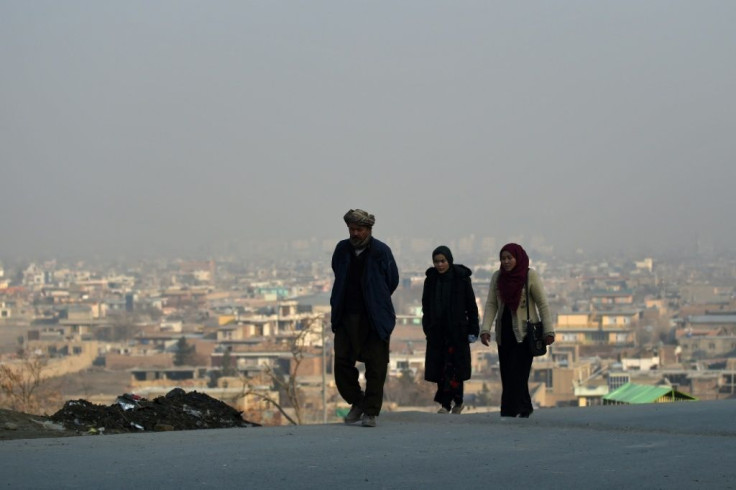Afghans See Bittersweet Chance For Peace In Taliban Deal

As university student Fazila Salehi enjoyed a rare late night out with her family -- thanks to a partial truce across Afghanistan -- she struggled to shake off a sense of foreboding about her country's future.
According to the timetable set out in an agreement signed Saturday between Washington and the Taliban, all foreign troops will withdraw from Afghanistan within 14 months in exchange for security guarantees and a pledge by the militants to hold talks with Kabul.
The deal came on the back of a week-long limited truce which has since been extended by President Ashraf Ghani's government, with a dramatic fall in attacks giving Afghans a rare opportunity to go about their daily lives without fear of violence.
"It was the best week of my life, it was a peaceful week," Salehi told AFP, describing her night-time excursion to the outskirts of her hometown of Herat as "a sweet dream".
"In eight months this was the first time we were out to have some fun," the 20-year-old said.
But the taste of freedom was bittersweet, she admitted, as she grappled with the possibility that the Taliban, whose brutal five-year rule confined women to their homes and barred girls from attending school, could once again have a say over her life.
"We are afraid and nervous. As a woman, I don't expect to be allowed to go out and enjoy the same freedom I have now," the journalism student said.
"I am planning to work after I graduate but if the Taliban return, I don't think they would allow me."
Millions of Afghans fled the country during the 1990s while it was in the throes of a brutal civil war and as the Taliban took control.

Kharetar Safi's family were among those who sought refuge in neighbouring Iran.
"They fled so my sister and I could go to school... but it was always their dream to come back to Afghanistan," the 29-year-old human rights activist told AFP in Kabul.
Her family returned to the country in 2006, five years after a US-led invasion toppled the Taliban and set the stage for the transition to a Western-backed democracy.
Safi said she had mixed feelings about Saturday's agreement.
"I am optimistic in the sense that people's lives will not be lost (but) when it comes to the laws imposed by the Taliban and their strict ideology, I am very concerned," she said.
For many in Afghanistan, the success of the partial truce followed by a US-Taliban deal that makes no mention of human rights means the fear of violence has been replaced by dread the insurgents will crack down on freedoms.
"Maybe we won't witness any more suicide attacks or explosions in Afghanistan but instead we might lose our independence as Afghan women," photographer Nilofar Niekpor said.
But others said the prospect of peace was worth the risk of negotiating with the Taliban.
"I hope both sides keep their promise to extend the reduction in violence and work for a long-lasting peace," Herat-based university professor Khalil Rasuli said.
"My family and I went to a lot of fun places in the past week... to breathe some fresh air, to see green spaces."
"My children and I went out for ice cream almost every day," he said, adding that such revelry would have been "impossible" even weeks ago.
© Copyright AFP 2024. All rights reserved.





















